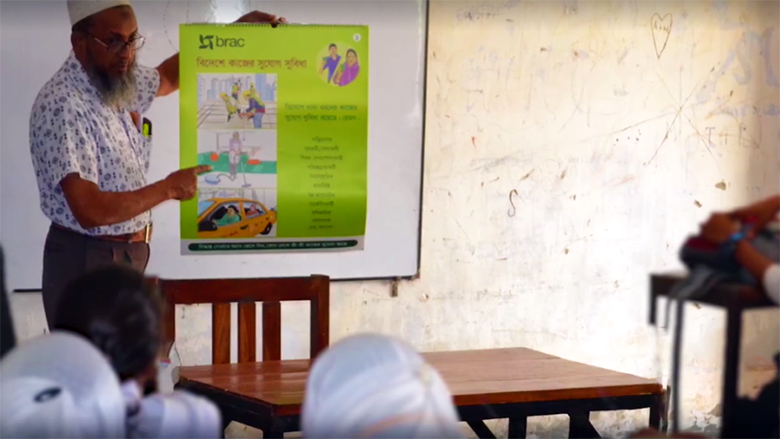Boarding a plane from Dhaka’s ShahJalal International Airport is almost never complete without encountering uniform clad, wide-eyed, anxious young men, and sometimes women, lining up with belongings for possibly their first ever journey to anywhere outside Bangladesh.
Elsewhere around the airport, there are emotionally charged scenes with children clinging to their fathers, teary eyed mothers, and sometimes entire villages coming to see off their next of kin. Going to a new country without the certainty of returning is daunting to say the least.
To reach their aspirations, Bangladeshi migrant workers put a lot at stake. Leaving behind their families and children unattended in a predominantly male-dominated society is only part of the story.
Nevertheless, migration continues to be a major pillar for the economy of Bangladesh
Half a million Bangladeshis migrated to various countries in 2015, adding to the 9 million Bangladeshi migrants already living abroad, many since the 1970s.
Remittance inflows in FY2016 alone were nearly $15 billion, and based on a five-year average, account for about 9 per cent of the country’s GDP. In addition, international migration eases the pressure on the domestic economy by absorbing up to 500,000 workers each year.
Challenges
However, one of the persistent challenges is that more than half the migrant workers from Bangladesh are classified as less-skilled. With little education and poor access to information, the desperation to rise out of poverty can cloud basic awareness and judgment of utilizing reliable services and safe channels of migration.
Only 10 per cent of Bangladeshi workers migrate through formal channels. As a result, a vast majority frequently fall victim to fraudulent middlemen and exploitative employers, leading to loss of their lifetime savings and assets; harassment; abuse and imprisonment.
Supporting migrants and their families
The Safe Migration for Bangladeshi Workers (SMBW) Project aims to help vulnerable, young and semi-skilled Bangladeshi migrant workers access training opportunities, reliable information and services to improve their migration.
Implemented by BRAC, financed by the Japan Social Development Fund (JSDF) and administered by the World Bank, SMBW provides support to select Community Based Organizations (CBOs) and partner NGOs to pilot additional services and support to migrants in 80 Upazilas across 20 districts in Bangladesh.
CBOs provide pre-departure and safe migration information to aspiring migrant family members through awareness workshops in courtyards and schools, infotainment, and community radios. Further, CBOs help migrants and their families fill out application forms and complete migration documentation to obtain work permit, job contracts, and clearances required by host countries.
Out of the 77 CBOs and partner NGOs working in partnership with BRAC to implement the SMBW project, eight have been awarded innovation grants to develop low cost and high impact safe migration awareness sessions, encourage women’s empowerment and migration, improve workers’ skills, and provide arbitration in case of fraudulence.

